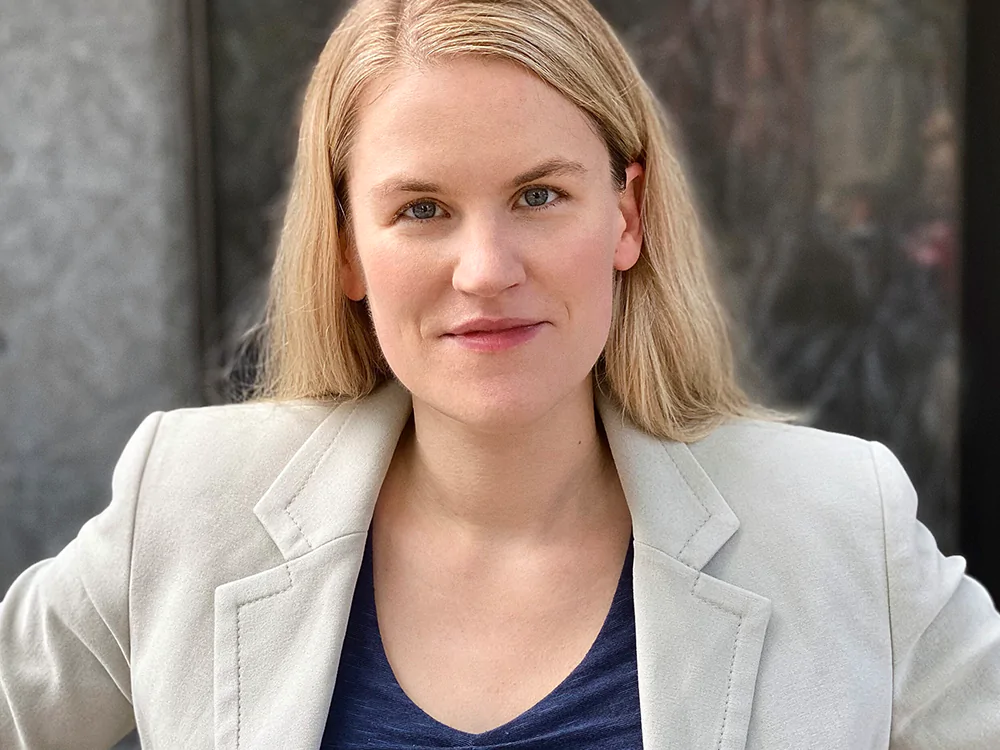On the internet where information is accessible by anyone, data is transparent. Ironically, how users' data is managed is opaque.
Behind people's back, personal information are being collected, stored and shared among marketers and internet companies, as they seek ways to monetize from those netizens' interests.
Frances Haugen, who once worked for Facebook, thinks that her former employer isn't doing enough to preserve users' privacy, and that the things it does is not transparent.
This is why she turned her back against Facebook to become a whistleblower by publicly leaked data about her former employer. She repeatedly said that Facebook the company that then rebranded to Meta, prioritizes profit above anything else, by leaving users with no choice but to follow its guidelines and rules.
Most importantly, Haugen said that Meta doesn't care about its users' privacy, and suggesting that it is among the most invasive internet service ever.
As a person who values transparency, Haugen has a contrast opinion regarding cryptocurrencies.

She went on to explain how cryptocurrencies don't run in the United States. nor in Europe, nor in Africa.
"It runs everywhere simultaneously. Its applications, instead of running in a data center, they're running in pockets everywhere in these decentralized networks," she said. "I think there's going to be, unquestionably, sometime in the next five years or so, a social network where no one is responsible for it."
The whistleblower who left her position at Meta after two years working there, said that she supports cryptocurrency for the same reason she disclosed Meta's corporate secrets: transparency.
She voiced her enthusiasm for cryptocurrency, and praised how the decentralized financial networks emphasize democratic governance and increased disclosure.
She also cited the emergence of DeFi, short for decentralized finance, which uses a public, distributed ledger to perform traditional financial functions that would otherwise rely on institutions like banks or national governments.
Further reading: People Should Not Allow 'Computers Deciding What We Focus On'
Frances Haugen is best known as the whistleblower who publicly shared Facebook internal documents known as the "Facebook Files," which revealed how the company dealt with issues, like the effect of Instagram on the mental health of young girls, the prevalence of anti-vaccine misinformation in comments on Facebook posts, and the use of Facebook for the trafficking of vulnerable domestic workers.
The documents also included data about how Facebook knew its products were spurring ethnic violence in places such as Ethiopia, and that it failed to combat misinformation on its platform relating to the Jan. 6 Washington. D.C., riot on Capitol Hill.
During her time at Facebook, Frances realized that the company intentionally hid vital information from the public and governments around the world, despite being completely aware of how its platforms were used to spread misinformation, hate, and violence.
Before she left the social network, she copied thousands of pages of confidential documents and shared them with lawmakers, the Federal Trade Commission Bureau of Consumer Protection, as well as the media.
Since then, Haugen has came face to face with one of the richest and most influential organizations in the world, during her attempt in fighting against potentially harmful misinformation spread by Facebook users.
She claimed to become "an advocate for accountability & transparency in social media" because people should have social media we enjoy "that brings out the best in humanity."
Haugen said that she left the U.S. to live in Puerto Rico with her "crypto friends,"
Haugen said she was managing financially for the “foreseeable future” because she had bought crypto “at the right time.”
She also mentioned that some of her expenses are being funded by non-profit organizations supported by eBay founder Pierre Omidyar.
